- Home
- Books
- Categories
- Non Fiction
- History
- Political
- SECULAR MUSLIM JINNAH, HIS POLITICS AND PAKISTAN
SECULAR MUSLIM JINNAH, HIS POLITICS AND PAKISTAN
By: MD UMAIR KHAN
-
Rs 2,695.50
- Rs 2,995.00
- 10%
You save Rs 299.50.
Due to constant currency fluctuation, prices are subject to change with or without notice.
Secular Muslim: Jinnah, His Politics and Pakistan covers Pakistan’s founder Mohammed Ali Jinnah’s political journey from start to finish. It also explores the origin of classical liberalism and moderate secularism whose salient features inspired his approach to politics. The writer pinpoints several distortions in ‘history books’ and debunks several myths surrounding Jinnah and the Pakistan Movement. One such myth is the so-called Two Nations Theory’. Contrary to the popular belief, right-wing Caste Hindus were the first to classify themselves as a separate nation in British Raj, and they wanted to create one state in the subcontinent free of non-Hindus. The book explains how Jinnah used their ideology against them later on and tried to achieve an inclusive state for all religious communities and atheists of the subcontinent, where oppressed classes, in general, could progress economically and emancipate their women. The author concludes that the present-day Islamic Republic of Pakistan is everything its founder stood against throughout his life. Therefore there is a need to establish a secular albeit Muslim-majority state that serves all its citizens equally, regardless of their religion, caste, creed, sect or gender.
Secular Muslim: Jinnah, His Politics and Pakistan covers Pakistan’s founder Mohammed Ali Jinnah’s political journey from start to finish. It also explores the origin of classical liberalism and moderate secularism whose salient features inspired his approach to politics. The writer pinpoints several distortions in ‘history books’ and debunks several myths surrounding Jinnah and the Pakistan Movement. One such myth is the so-called Two Nations Theory’. Contrary to the popular belief, right-wing Caste Hindus were the first to classify themselves as a separate nation in British Raj, and they wanted to create one state in the subcontinent free of non-Hindus. The book explains how Jinnah used their ideology against them later on and tried to achieve an inclusive state for all religious communities and atheists of the subcontinent, where oppressed classes, in general, could progress economically and emancipate their women. The author concludes that the present-day Islamic Republic of Pakistan is everything its founder stood against throughout his life. Therefore there is a need to establish a secular albeit Muslim-majority state that serves all its citizens equally, regardless of their religion, caste, creed, sect or gender.
SECULAR MUSLIM JINNAH, HIS POLITICS AND PAKISTAN
By: MD UMAIR KHAN
Rs 2,695.50 Rs 2,995.00 Ex Tax :Rs 2,695.50
Zubin Mehta: A Musical Journey (An Authorized Biography)
By: VOID - Bakhtiar K. Dadabhoy
Rs 472.50 Rs 1,050.00 Ex Tax :Rs 472.50
The China-Pakistan Axis: Asia's New Geopolitics
By: Andrew Small
Rs 4,286.75 Rs 6,595.00 Ex Tax :Rs 4,286.75
The Judiciary And Politics In Pakistan 1999-2013
By: Najeeb-Ur-Rehman
Rs 3,595.50 Rs 3,995.00 Ex Tax :Rs 3,595.50
The Struggle for Pakistan: A Muslim Homeland and Global Politics
By: Ayesha Jalal
Rs 8,095.50 Rs 8,995.00 Ex Tax :Rs 8,095.50
Jinnah's Pakistan - Formation and Challenges of a State
By: N/A
Rs 1,030.50 Rs 1,145.00 Ex Tax :Rs 1,030.50
Quaid-e-Azam Muhammad Ali Jinnah Khutoot Kay Ainay Mein
By: KHWAJA RAZI HAIDER
Rs 985.50 Rs 1,095.00 Ex Tax :Rs 985.50
The Origins of Political Order From Prehuman Times to the French RevolutioN
By: Francis Fukuyama
Rs 3,505.50 Rs 3,895.00 Ex Tax :Rs 3,505.50
Manning Up: How the Rise of Women Has Turned Men into Boys
By: Kay Hymowitz
Rs 646.75 Rs 995.00 Ex Tax :Rs 646.75
The Obama Syndrome: Surrender At Home War Abroad
By: Tariq Ali
Rs 1,165.50 Rs 1,295.00 Ex Tax :Rs 1,165.50
The Quest For Meaning: Developing A Philosophy Of Pluralism
By: Tariq Ramadan
Rs 1,255.50 Rs 1,395.00 Ex Tax :Rs 1,255.50
The Pakistan US Conundrum Jihadists The Military And The People The Struggle For Control
By: Yunas Samad
Rs 1,255.50 Rs 1,395.00 Ex Tax :Rs 1,255.50
An Enemy We Created: The Myth Of The Taliban Al Qaeda Merger In Afghanistan 19702010
By: Alex Strick van Linschoten
Rs 3,412.50 Rs 5,250.00 Ex Tax :Rs 3,412.50
WikiLeaks: Inside Julian Assanges War on Secrecy
By: David Leigh & Luke Harding
Rs 552.50 Rs 850.00 Ex Tax :Rs 552.50
The China-Pakistan Axis: Asia's New Geopolitics
By: Andrew Small
Rs 4,286.75 Rs 6,595.00 Ex Tax :Rs 4,286.75
The Judiciary And Politics In Pakistan 1999-2013
By: Najeeb-Ur-Rehman
Rs 3,595.50 Rs 3,995.00 Ex Tax :Rs 3,595.50
The Struggle for Pakistan: A Muslim Homeland and Global Politics
By: Ayesha Jalal
Rs 8,095.50 Rs 8,995.00 Ex Tax :Rs 8,095.50
Jinnah's Pakistan - Formation and Challenges of a State
By: N/A
Rs 1,030.50 Rs 1,145.00 Ex Tax :Rs 1,030.50
Quaid-e-Azam Muhammad Ali Jinnah Khutoot Kay Ainay Mein
By: KHWAJA RAZI HAIDER
Rs 985.50 Rs 1,095.00 Ex Tax :Rs 985.50
No recently viewed books available at the moment.
Zubin Mehta: A Musical Journey (An Authorized Biography)
By: VOID - Bakhtiar K. Dadabhoy
Rs 472.50 Rs 1,050.00 Ex Tax :Rs 472.50
SECULAR MUSLIM JINNAH, HIS POLITICS AND PAKISTAN
By: MD UMAIR KHAN
Rs 2,695.50 Rs 2,995.00 Ex Tax :Rs 2,695.50
The China-Pakistan Axis: Asia's New Geopolitics
By: Andrew Small
Rs 4,286.75 Rs 6,595.00 Ex Tax :Rs 4,286.75
The Judiciary And Politics In Pakistan 1999-2013
By: Najeeb-Ur-Rehman
Rs 3,595.50 Rs 3,995.00 Ex Tax :Rs 3,595.50
The Struggle for Pakistan: A Muslim Homeland and Global Politics
By: Ayesha Jalal
Rs 8,095.50 Rs 8,995.00 Ex Tax :Rs 8,095.50
Jinnah's Pakistan - Formation and Challenges of a State
By: N/A
Rs 1,030.50 Rs 1,145.00 Ex Tax :Rs 1,030.50
Quaid-e-Azam Muhammad Ali Jinnah Khutoot Kay Ainay Mein
By: KHWAJA RAZI HAIDER
Rs 985.50 Rs 1,095.00 Ex Tax :Rs 985.50












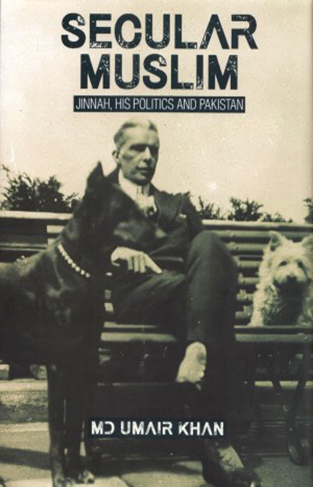
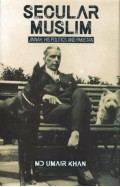
-120x187.jpg?q6)





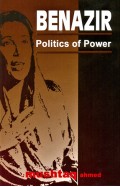
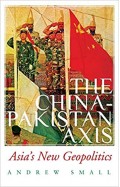
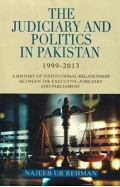
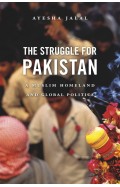
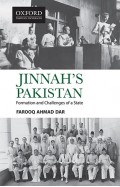
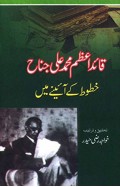
-120x187.jpg?q6)



-120x187.jpg?q6)



